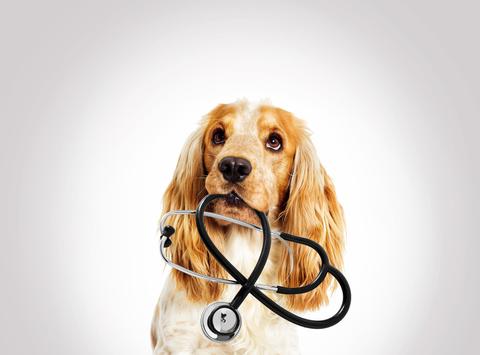Why It Is so Important Our Pet's Annual Checkup?
A periodic check-up or health check-up of a pet should be part of a routine care. Contrary to people, with pets, we must be especially careful since these beings cannot warn us of an ailment of the mouth, ear, vision, belly, etc.
The number of veterinary check-ups that pets should have depends, above all, on their age. They are most usual in puppies and elderly pets.
Why is it important to have a health check-up for a pet?
At least one check-up per year is very important for the health of our pet. These check-ups can detect diseases that might otherwise go unnoticed.
To understand the importance of this measure, let's think for example about serious diseases such as cancer. Many types are treatable as long as they are diagnosed in time.
The same goes for certain heart problems that, with proper medication, can be kept under control for years. Logically, the older your dog gets, the more necessary these types of controls are.
Annual vaccinations
As the years go by, your pet will need to visit the veterinarian for boosters of certain vaccines such as rabies, hepatitis, distemper, and other combination vaccines to protect against multiple diseases.
The vet will check that its vaccinations are complete and up to date. If your pet is up to date on vaccinations, the first year the dog or cat should be revaccinated and after that only an annual reminder is necessary.
Vaccinating your dog, for example, can make the difference between life and death, as it is the way to prevent them from developing some serious infectious diseases. For example:
- Distemper
- Canine hepatitis
- Parvovirus
- Leptospirosis
- Canine Parainfluenza
- Rabies
- Bordetella
In the case of cats, proper vaccinations prevent them from developing some serious infectious diseases such as:
- Feline panleukopenia
- Feline calicivirosis
- Feline rhinotracheitis
- Leukemia
- Feline calicivirus
- Rabies
What does a medical checkup for pets look like?
The veterinarian will examine it from head to tail, checking teeth, eyes, ears, bones, flexibility, and even the quality of the coat (a dull coat is a symptom of dehydration or lack of essential vitamins).
Weight: sometimes the weight reveals a lot about the health status of the pets, that is why it is a common procedure to weigh them, it is bad for them to be overweight as well as underweight.
Vital signs: you will check their heart rate, respiratory rate, and body temperature.
It is recommended that you be there for your furry friend when its temperature is taken as a rectal thermometer is used, which will be very uncomfortable.
Body check: The expert will feel your pet's neck, paws, back, belly, muscles, and abdomen for lumps, signs of pain, or inflammation; a thorough examination will determine if there is anything unusual that needs to be checked.
Internal parasite control: the vet will analyze a stool sample under a microscope to detect the presence of larvae or eggs of internal parasites, and if necessary to eliminate them.
Blood tests: through this test, several diseases can be detected, such as anemia, infection, bone marrow problems, diabetes, and organ dysfunction.
The veterinarian will ask you important questions, to which you must answer truthfully and in detail, about your pet's diet, exercise routine, or changes in his environment; all these details help to determine the final diagnosis.
Benefits of annual check-ups for pets
A regular check-up, even if you have not noticed any symptoms of disease, can spare your dog or cat from suffering. This is because some diseases, in their early stages, are asymptomatic, that is, they do not present obvious symptoms. When these symptoms become apparent, it may already be too late...
Savings in veterinary costs. Many pet owners do not go to the vet because the service is expensive but early detection of some diseases can save us a lot of trouble... and a lot of money!
It can save us an operation or a longer treatment against a pathology that, if detected in time, could have been fought with cheaper and less invasive methods.
The veterinarian refers you to specialists. If you have an unusual pet such as an exotic bird or reptile. If you take your pet to your trusted veterinarian, he/she is likely to know colleagues who can help you and thus ensure an effective cure for your pet.
Check-ups in elderly dogs and pregnant dogs.
If you have a female dog and you decide to have her breed, go to the veterinarian before this process so that you have the necessary information before the gestation process. During this period, you will have to visit the veterinarian more frequently, to make sure that both the mother and the puppies are well.
If you have a dog over seven years old, veterinary visits should be more frequent, at least once every 6 months, and include geriatric check-ups. At this stage, diseases such as osteoarthritis, cardiac or metabolic disorders may appear.
Pets that should go to the veterinarian.
When a pet has health problems, it is always advisable to take it to the veterinarian. However, not all breeds and species need to go for preventive check-ups. In the case of dogs and cats, it is necessary, but not in the case of birds, fish, rodents, among others.
However, it is always best to schedule a visit to the veterinarian once a year to make sure your pet is in good condition, regardless of the species.
The health of our animals is very important and we must follow the schedules recommended by veterinarians.
By complying with the required visits and detecting any alarming symptoms, we will be helping our furry ones to enjoy the health and well-being they deserve.


0 Comments
There are no comments for this article. Be the first one to leave a message!